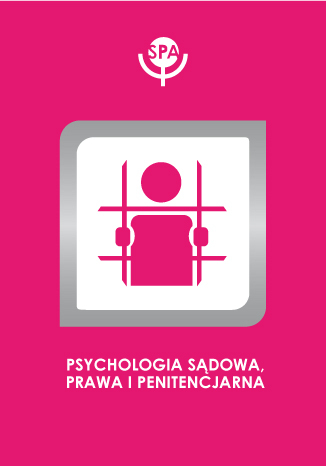Array
(
[id] => 454
[date] => 2019-03-14
[doi] => 10.14691/CPPJ.24.2.373
[title] => Proaktywność osadzonych a ich nadzieja na sukces i lęk przed przyszłością
[title_en] => PROACTIVITY OF INMATES, THEIR HOPE AND FUTURE ANXIETY
[authors] => Małgorzata Wysocka-Pleczyk, Kinga Tucholska
[abstract] => The paper presents results of research on the topic of incarcerated people’s proactivity. Two research questions were formulated: 1) Do men and women differ in terms of proactive activity in conditions of prison isolation? 2) What are the links between inmates’ proactivity and their focus on the future – hope and future anxiety? Research was conducted with a questionnaire designed specifically to measure proactivity of inmates which is SPIW15 by Kwiatkowski and Bańka, and two psychological questionnaires designed to examine temporal variables in the general population KNS by Łaguna, Trzebiński and Zięba, and DFS by Zaleski. The study covered a group of 93 inmates – 30 repeatedly convicted men, 21 repeatedly convicted women and 42 women imprisoned for the first time. Test results indicate sex differences in the level of inmates’ proactivity – women, especially repeatedly convicted, indeed are more likely than men to declare proactive behaviors. In addition, women’s proactivity is associated with conviction of getting positive results, will power and skills of finding solutions in a variety of situations. While in the group of imprisoned men taking proactive actions is correlated with future anxiety.
[abstract_en] => The paper presents results of research on the topic of incarcerated people’s proactivity. Two research questions were formulated: 1) Do men and women differ in terms of proactive activity in conditions of prison isolation? 2) What are the links between inmates’ proactivity and their focus on the future – hope and future anxiety? Research was conducted with a questionnaire designed specifically to measure proactivity of inmates which is SPIW15 by Kwiatkowski and Bańka, and two psychological questionnaires designed to examine temporal variables in the general population KNS by Łaguna, Trzebiński and Zięba, and DFS by Zaleski. The study covered a group of 93 inmates – 30 repeatedly convicted men, 21 repeatedly convicted women and 42 women imprisoned for the first time. Test results indicate sex differences in the level of inmates’ proactivity – women, especially repeatedly convicted, indeed are more likely than men to declare proactive behaviors. In addition, women’s proactivity is associated with conviction of getting positive results, will power and skills of finding solutions in a variety of situations. While in the group of imprisoned men taking proactive actions is correlated with future anxiety.
[keywords] => proactivity, hope, future anxiety, inmate, prison isolation
[keywords_en] => proactivity, hope, future anxiety, inmate, prison isolation
[file_path] => /files/articles/2018-24-proaktywno-osadzonych-a-ich-nadzieja-na-sukces-i-lk-przed-przyszoci.pdf
[okladka] => psychologia_sadowa_prawa_i_penitencjarna.jpg
[rocznik] => Rocznik: 2018 Tom: 24 Numer: 2
[strony] => 373-380
)










 Pobierz pełny tekst
Pobierz pełny tekst



